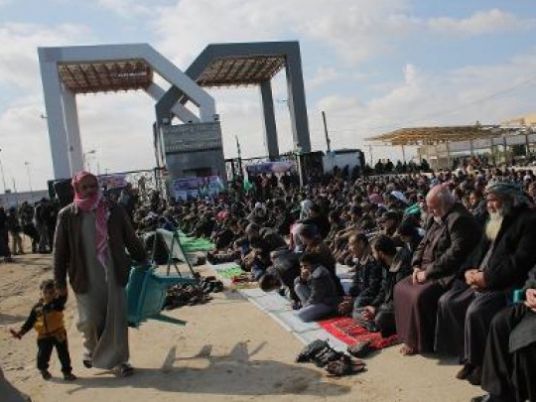Jerusalem–Prime Minister Benjamin Netanyahu rejected on Sunday a description of President Barack Obama as Israel’s "greatest disaster," a phrase a best-selling newspaper attributed to an anonymous confidant of the premier.
Both leaders are locked in a deep disagreement over Israeli settlement in occupied territory in and near Jerusalem. Analysts have described as a humiliating snub Obama’s low-profile White House talks with Netanyahu on Tuesday.
In a banner headline, Israel’s Yedioth Ahronoth, quoted an unidentified Netanyahu confidant as saying: "We’ve got a real problem. You could say that Obama is the greatest disaster for Israel — a strategic disaster."
A statement issued by Netanyahu’s office said: "The prime minister emphatically rejects the anonymous quotes about President Obama that a newspaper attributed to one of his confidants, and he condemns them."
Netanyahu was at pains to hammer home the message, telling reporters at the start of the weekly cabinet meeting: "I have heard over recent days anonymous and improper remarks in the media about the US administration and American president."
"I want to say clearly, these comments are unacceptable to me. They do not come from anyone representing me. The relations between Israel and the United States are those of allies and friends, and are based on tradition spanning many years."
Netanyahu gave no indication in his public remarks at the session that he intended to curb settlement in East Jerusalem, an issue that has angered Palestinians and delayed the start of indirect, US-mediated peace talks.
But the statement–distributed to correspondents by text message, and followed by two telephone calls from a Netanyahu spokesman to check it was being published — appeared to signal the Israeli leader’s wish not to worsen tensions with Obama.
The Obama-Netanyahu meeting at the White House was held without the usual trappings of an on-camera handshake or a joint statement.
"There were areas in which there was swift agreement," Netanyahu told the cabinet about the talks.
"In areas where there was disagreement, we tried to take, and we did take, certain steps to narrow the gaps in order to move the (peace) process forward," he said, without elaborating.
Resisting US pressure, Netanyahu has said Israel would not stop building in West Bank territory it annexed to East Jerusalem after capturing the two areas in a 1967 war.
Netanyahu has vowed to find a way out of the faceoff, but a Friday meeting of senior cabinet members to discuss measures that might persuade the Palestinians to resume peace talks adjourned without any breakthrough.
"I think we will continue these efforts. We are continuing them today and in the coming days," Netanyahu said at the cabinet meeting.
Netanyahu’s government is dominated by pro-settler parties, including his own, and meeting any US demands on settlements — after a 10-month partial construction freeze he announced in November — could endanger his coalition.
Citing historical and Biblical links, Israel considers all of Jerusalem its capital, a claim that is not recognized internationally. Palestinians want East Jerusalem as the capital of a state they seek in the West Bank and Gaza Strip.




